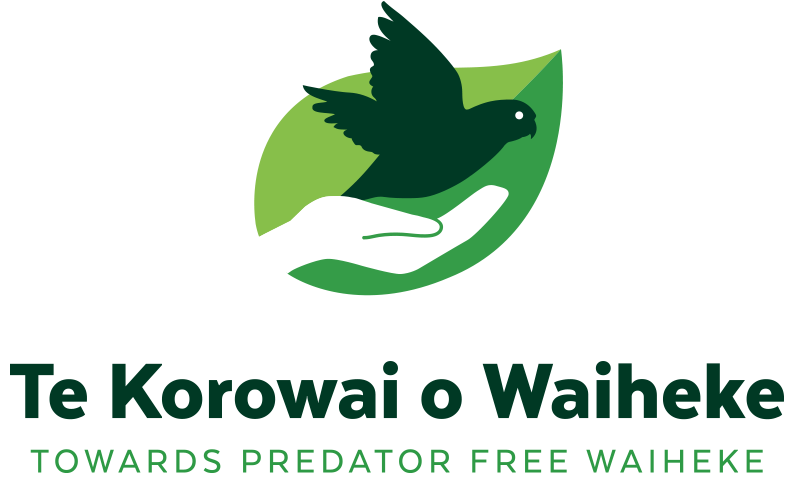Wero’s Nose Knows: Sniffing Out Stoats on Waiheke
The team recently had the pleasure of reconnecting with Brad Windust and his amazing stoat detection dog, Wero, during their annual visit to the motu. This dynamic duo is playing a crucial role in the mission to make Waiheke Island predator-free.
Wero, meaning "challenge" in Māori, is a pioneer in New Zealand. He was the first dog in the country trained specifically to detect stoat scat (poo). Why is this so important? Because stoats use their scat to communicate, leaving behind smelly messages about den sites, food caches, and territorial boundaries. By sniffing out these "messages," Wero helps our trappers pinpoint stoat hotspots and target their efforts effectively.
Brad and Stoat Detection Dog Wero
As Brad explains,”Wero and I travel all over the country, working with councils, iwi, conservation groups, and the Department of Conservation to ensure islands and sanctuaries remain pest-free, by either checking for stoat presence or tracking down stoats if there is an incursion". In the case of Waiheke, Brand, and Wero are helping the motu to ‘become’ stoat-free.
The duo recently spent six days scouring Waiheke for signs of stoats. Encouragingly they found very little, but one detection at an ‘area of interest’ enabled the team to fine-tune trap placements, and within days one elusive stoat was caught.
But the hardest part is to come according to Brad “I've really got my fingers crossed for Waiheke. There aren’t many left, but the last stoats are the hardest to catch, if we actually get the last few, this place will just keep getting better and better every year”.
It was inspiring to hear Brad talk about the incredible transformations that occur when an island becomes predator-free, which he has seen first-hand.
"We have been so lucky to see the incredible change that happens once an island becomes predator-free. Once done, amazing and unexpected things happen. Frogs return to ponds, and bumblebee and butterfly numbers increase. Unique, rare native birds return and beautiful iridescent green and velvet brown forest geckos reappear”
“Islands like this are the envy of so many conservation groups all over the world. From what I've experienced, there is one thing I can guarantee you: it will be the most interesting, positive thing you've ever been a part of and we wish you all the very best with it”
We're incredibly grateful to have had Brad and Wero, as well as the other Stoat Detection Dogs and their handlers as part of the team to find the last stoats on Waiheke. Their dedication and expertise are invaluable in the mission to create a haven for our native wildlife.
Want to learn more about stoat eradication efforts? Check out our website and follow us on social media for updates!

